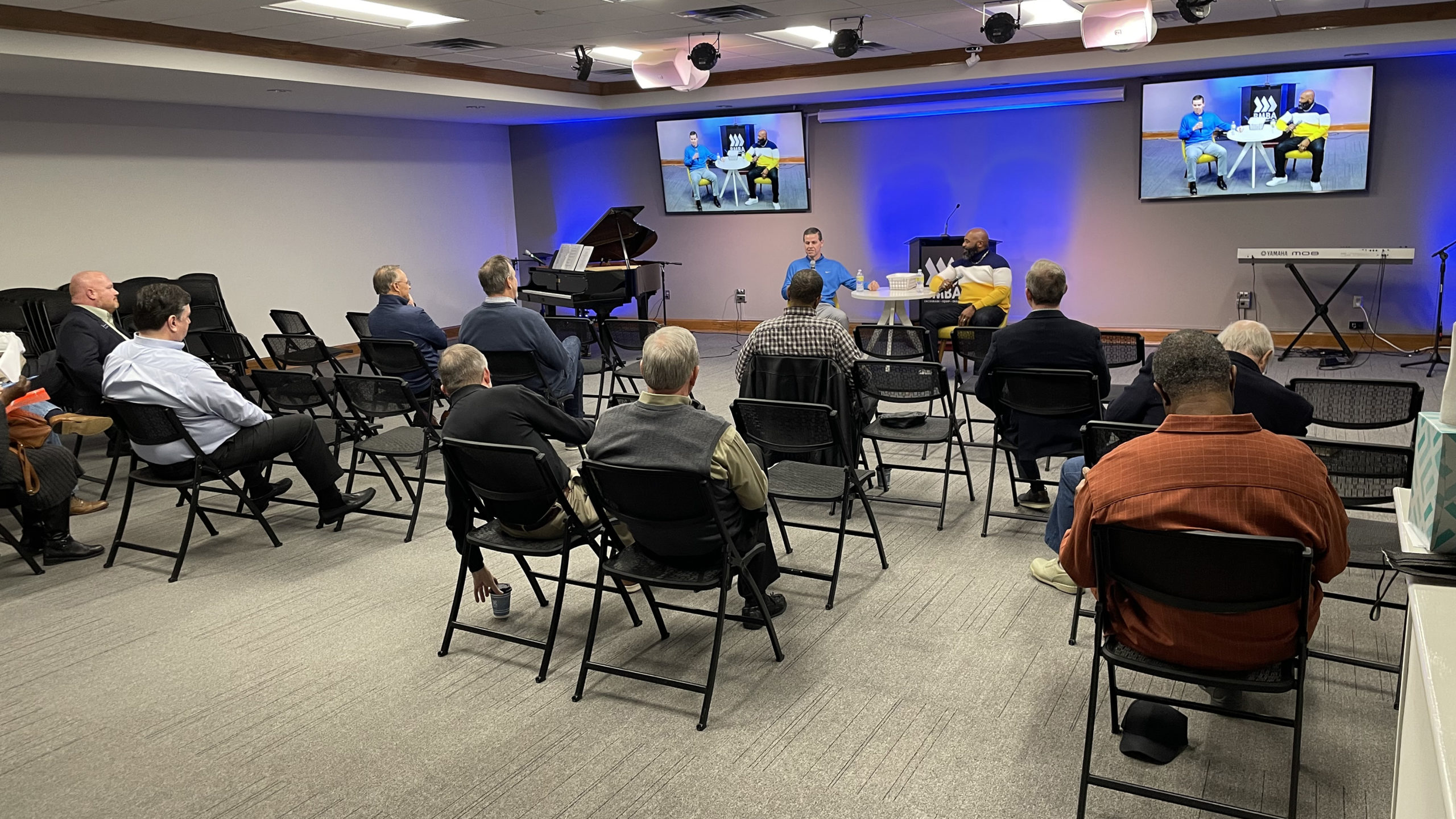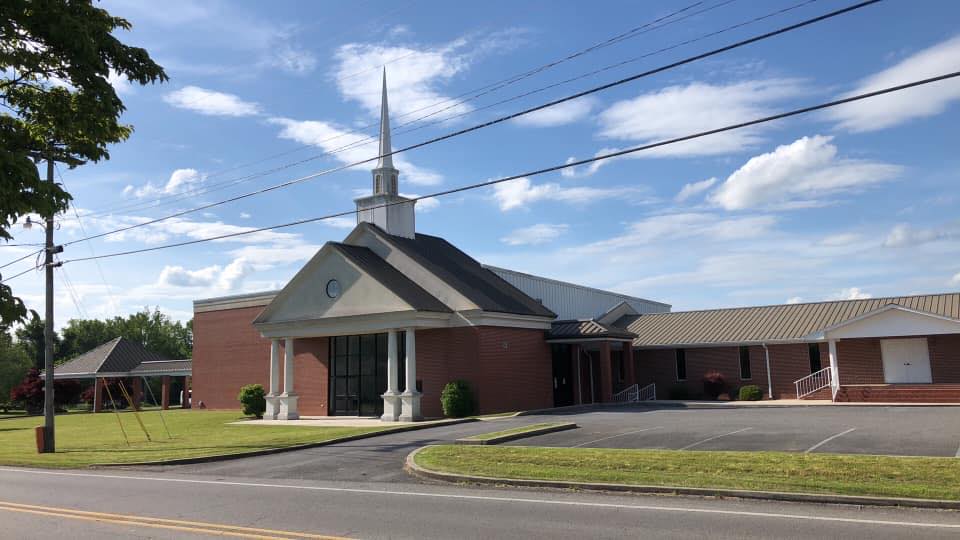During a recent public dialogue between Jeff James, lead pastor of Green Valley Church in Hoover, and Doug Taylor, pastor of Rebirth Christian Fellowship in Birmingham, the vital but often divisive topic of racial unity was addressed in an effort to help foster understanding through everyday conversation.
Green Valley Church hosted the event titled “A Conversation About Racial Unity,” and Birmingham Metro Baptist Association also featured James and Taylor at a recent ministers conference.
James said there are five things he hopes his church and others will take away from ongoing discussions of racial unity: “We want to learn. We want to listen. There’s going to be some times we need to lament and be brokenhearted about where we’ve been and even where we are. Then we want to live and we want to lead differently.”
Both pastors are part of a group of men in the community that meets regularly to discuss important issues affecting the community and the church.
According to James, the group was started to involve people who might not normally be in a circle together, including “pastors, different races, different denominations, different parts of the city, etc.”
Being in proximity
James said he believes part of the pursuit of racial unity is being in proximity with individuals of another race and building long-lasting relationships. He began the dialogue by asking Taylor what he had taken away from the community group’s meetings.
“We met at the height of racial unrest and I’ll admit, I walked into the room when I was a little militant,” Taylor recalled. “I came in and I said, ‘I’m just going to be me. I’m not going to be politically correct.”
Taylor admitted he had a chip on his shoulder at the time.
“After a year I found two things,” he continued. “I found number one, there will be more that will be with us than … will be against us,” and secondly, he realized he hadn’t been angry enough about racial injustice.
Sharing the story
James noted his church loves stories and believes they also matter to God. In that light, he asked Taylor to tell his as it related to prejudice, injustice and racism.
“For me, I have several emotional responses to racism,” Taylor said. “They range from anger, to regret, to fear.”
Related to prejudice, Taylor shared a story about his mother, who was a teacher and dealt with a white student who complimented her, but at the same time used a derogatory word about her.
Taylor said he coined the term “functional racist” after that situation.
“I learned that there are so many people that function well, but in their hearts and in their homes, I’m not referred to as pastor Taylor — and what it did is build a wall,” he said. “Unfortunately, every person, every Caucasian person, in the back of my mind I wonder, ‘Who am I really to them?’ Some days I’m gleefully optimistic. Other days I realize there are more conversations to be had.”
Taylor added he believes a little conversation heals a lot of hurts.
Accountability
James asked why Taylor thinks society has such a hard time having these conversations.
“Nobody wants to be held accountable for their own sins,” Taylor replied. “The Bible says everybody’s ways are right in their own eyes. We don’t want to come to grips with the fact that we are not an equitable country. There is not a level playing field.
“In the midst of all the amazing things we have in our country — God bless America — I’m not going to where people say, ‘If you don’t like what’s going on in America then you can go back to Africa.’ Why am I going back to Africa? I didn’t build Africa.”
Taylor went on to say he believes many have the mentality that everyone just needs to be happy and not deal with scars of the past.
“‘Don’t make a ruckus,’” he said. “I believe sometimes people think we’re having these conversations because we’re looking to blame or to punish. I don’t want to punish you. I just want to have a conversation so we never get there again.
“Without conversation about racial unity — to listen, to learn — we will never find unity,” Taylor declared. “Without the willingness to be humble and seek to learn, I think we’ll always be on the defensive because we think we’re being attacked.”
Jesus’ perspective
James pointed the discussion toward scripture and what Jesus said about unity.
“Jesus prayed in John 17 ‘that they would be one,’” James related, asking Taylor if the lack of unity is hurting what he referred to as Kingdom business.
“I think we’re all guilty of it,” Taylor answered. “We have to check our hearts and ask, ‘Is this really authentic?” I believe it has to be intentional. It’s our mission. When it’s authentic, God honors it.”
James added he believes the biggest problem in the culture today is the failure of the Church.
“The Church has been called to set an example from the prayer of Jesus in John 17,” he explained. “The Church has been silent, justified, given theological foundation to racism and prejudice over the last many decades, however far you want to go back.”
Final words
Taylor said all churches should accept accountability and encouraged the audience to take the message back home to their families, even if some people don’t agree.
“If you don’t agree, listen and acknowledge the person’s status,” he said. “If you’ve never lived it, you can’t understand it, but you can try to acknowledge its reality. Be brave enough and be bold enough to say, ‘I want to try to understand.’”
For more about how James and Taylor, and their respective churches, are striving toward racial unity and encouraging others to do so, visit Green Valley Church online at gvbc.org and Rebirth Christian Fellowship at rebirthchristian.org.






Share with others: